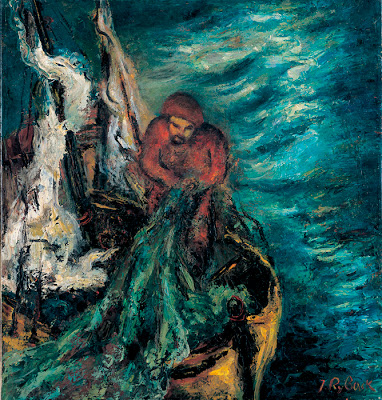Question & Answer With Chana Jenny Weisberg - One Size Fits All?
A Simple Jew asks:
A friend recently told me a story how he learned that he must use different a technique to motivate each of his children.
Returning home one night after work, he decided to give his kids an incentive to get their homework done quickly. "Once you get your homework done, we can all go out and get some ice cream!", he excitedly told them.
His daughter eagerly and instantly complied and completed her homework in a short period of time.
His oldest son completed his homework after repeated prompting and prodding to hurry up.
His middle son ignored his father. When reminded that he would not be getting any ice cream unless he finished his homework, the son replied, "I don't want ice cream" - thereby removing any power the father had over him.
Have you been successful to find the unique motivation technique for each of your children?
Chana Jenny Weisberg answers:
Every parent wants to raise children who fulfill their responsibilities with a feeling of joy followed by a sense of well-deserved satisfaction.
It is often difficult for young children to feel that joy without parental encouragement to sweeten the new skill they are learning. Different children will face different challenges that parents will need to be at the ready to sweeten. One child has difficulty sharing, another clearing her plate after lunch, and yet another has difficulty finishing his homework quickly, like the child in this example.
Because children are different in personality as well as age, every parent will need to be creative and attentive to figure out how to motivate every unique child in a positive manner.
Here are two ideas about motivating children based on stories from my own parenting life:
1. Age Appropriate Encouragement- My 3rd grader was recently having difficulty remembering to recite blessings before she ate. I thought back to my parenting class, and remembered that our teacher had suggested that every time a child recites a blessing, the parent should encourage the child by calling out with a lot of excitement, “You made an angel!” since every time a Jew does a mitzvah, that creates an angel.
The next time we had a meal together, I decided that every time a child said a blessing out loud, I would call out, “You made an angel!”
My younger children loved it, and started saying all their blessings in a loud voice, and got a wide, proud smile when I said that they had made an angel. But when I saw my 3rd grader picking up a piece of food, and I called out in my best nursery-school-teacher voice “Make an angel!” she became very upset. “You’re talking to me like a baby!” and she began to cry with her head in her hands, and ran out of the room.
Children of different ages require different motivational strategies. The Rambam discussed this issue when he described how to motivate children of various ages to study Torah. “When a child is young, the parent should give him nuts and honey and dates. When he grows older and rejects these small gifts, the father should give him fine clothes, and when he grows yet older and rejects these, the father should give him gifts of money. Afterwards, when he grows still older, the father should say, "Study Torah and you will become a leader and be called Rabbi.’ And afterwards he should say, "With Torah you will merit paradise.’ And when he becomes wise, his father should train him to learn Torah for its own sake.”
I decided to try a different strategy more suited to my 3rd grader. I bought a bag of chocolate chips, and before the next meal I placed a row of cups on the table with the name of each child written on it. Every blessing recited out loud resulted in two chocolate chips in that child’s cup. My 2nd grader got excited about this idea, and while her younger siblings eat their chocolate chips every evening after dinner, my 3rd grader saves up her chocolate chips for weeks at a time. At present she has 85 chocolate chips in her cup (I know because she counted them last night), and is planning to eat them all Erev Pesach!
2. Ask the Child- I had a child in kindergarten who would wake up at dawn, long before her siblings, but would play with her dolls and draw, and would not get dressed. All of my other children would wake up, get dressed, eat their breakfast, and would be all ready when it was time for me to take them to school. But my kindergartner was never ready on time, which resulted in a lot of nagging by me and crying by her and stress for the Weisberg family all around.
Some days I tried to motivate my kindergartner by promising her a note for her teacher. The promise of a note worked at times, but mostly it didn’t. Then I bought her some special chocolates wrapped in shiny yellow wrapper at the store. The promise of a chocolate worked a few times, but then they lost their effect as well.
I had no idea what to do. The situation went on for months and months, and it was only getting worse and worse. Then one day I was sitting with a friend in the park, and she suggested something so simple, so obvious, but yet very, very smart. She said, “Why don’t you ask your daughter what to do so she could get dressed in time?”
That very evening I sat down with my daughter on the sofa and had a talk that we should have had many months before. My daughter suggested that we create a sticker chart. For every five mornings she gets ready on time, she gets a prize from the dollar store.
You can already guess the end of the story. With that motivation, my kindergartner became the first family member dressed every morning. To this day, several years later, that child always is one of the first children to get dressed, and has never once missed the school bus.
At this point, I would also like to make a side point that probably a lot of readers are asking themselves. “If you give the child a prize/treat to do something, won’t that child become dependent on prizes/treats to do what they need to do?” This is an excellent and very valid question.
But as the Rambam assured us a thousand years ago, and as I have seen without exception in my own parenting experience with dozens and dozens of sticker charts etc., if done correctly, the prize/treat phase is just a bridge to ease the child into a new way of doing things. After a few weeks/months the child forgets about the prize/treat, but continues the new behavior.
One last note in this topic. When a child is difficult to motivate through positive means, our first instinct is often to turn to anger and yelling. There is a place for strict discipline in parenting, but the ratio of negative to positive methods should be like the ratio of salt to sugar in a cake recipe. Or the amount we use our right hand vs. our left hand when hammering a nail into the wall. We need the left hand to keep the nail steady and straight, but the vast majority of the force comes from the right hand. And this is the way it should be in parenting as well.
Raising children is a big challenge and a tremendous privilege as well. Each and every Jewish parent is helping to mold the next generation of the Jewish people. We build our children, and our children build us. This is the work that Hashem gives us in the world to serve Him.
--
Chana Jenny Weisberg is the author of the newly-released book One Baby Step at a Time: 7 Secrets of Jewish Motherhood and the creator of the popular website http://www.jewishmom.com/
















































